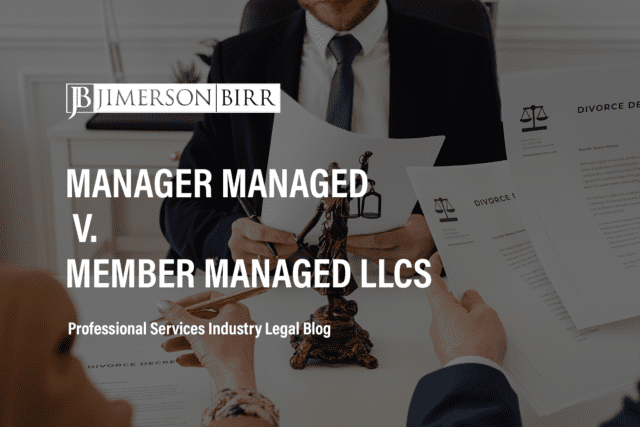What do anti-takeover defense measures and shareholder activism response entail?
Anti-takeover defense measures are tactics employed by companies to protect themselves from hostile takeovers. Shareholder activism response refers to the strategies used by corporations and their board of directors to address concerns raised by activist shareholders. Implementing these measures helps companies maintain control of their operations and foster long-term growth.
Two examples of when corporate executives or boards of directors require counsel on anti-takeover defense measures and shareholder activism response include the following:
- A hostile bidder attempts to gain control of a company through a tender offer; or
- Activist shareholders seek to influence the company’s management or board composition.
In both situations, legal counsel can help devise appropriate strategies to address these challenges while ensuring compliance with relevant Florida and federal laws.
Need help with a matter related to anti-takeover defense measures and shareholder activism response? Schedule your consultation today with a top corporate and board of directors governance and operations attorney.
Which Florida and federal laws and regulations apply to anti-takeover defense measures and shareholder activism response?
Florida and federal laws guide anti-takeover defense measures and shareholder activism response. For example, the Florida Business Corporation Act (FBCA) contains provisions that can be relevant in the context of hostile takeovers and shareholder activism. For instance, the FBCA outlines the requirements for calling special meetings, the rights of shareholders to propose resolutions, and the process of amending corporate bylaws.
At the federal level, the Securities Exchange Act of 1934 contains regulations that govern tender offers, proxy solicitations, and other aspects of shareholder activism. For example, the Williams Act, an amendment to the Securities Exchange Act, establishes the rules for tender offers, requiring bidders to disclose their intentions and treat all shareholders equally.
Understanding Florida and federal laws pertaining to anti-takeover defense measures and shareholder activism response is crucial for corporate executives and boards of directors as they navigate these complex governance and operational matters. By staying informed and seeking appropriate legal counsel, they can effectively address challenges posed by hostile takeovers and activist shareholders while ensuring compliance with relevant laws and regulations.
What issues anti-takeover defense and shareholder activism issues commonly lead to litigation?
The following issues are among the most common in litigation involving anti-takeover defense measures and shareholder activism response:
- Breach of Fiduciary Duty: Directors and officers may face accusations of failing to act in the corporation’s and its shareholders’ best interests when implementing or responding to anti-takeover measures or shareholder activism.
- Inadequate Disclosure: Companies may face litigation if they fail to provide adequate information to shareholders regarding anti-takeover measures or responses to shareholder activism, leading to claims of misleading or incomplete disclosures.
- Conflicts of Interest: Lawsuits may arise if directors or officers have personal interests in the outcome of anti-takeover measures or shareholder activism response, leading to allegations of self-dealing or other conflicts of interest.
- Improper Defensive Tactics: Companies may be subject to litigation if they adopt anti-takeover measures perceived as overly aggressive, unreasonable, or disproportionate in response to a perceived threat.
- Misuse of Corporate Resources: Shareholders may initiate litigation if they believe corporate resources are being misused in implementing anti-takeover measures or responding to shareholder activism.
What strategies minimize the risk of litigation over anti-takeover defense measures and shareholder activism response?
Implementing the following strategies may help mitigate risk:
- Careful Planning and Analysis: Conduct thorough assessments of potential takeover threats and shareholder activism campaigns, and develop well-reasoned and proportionate defense strategies.
- Transparent Communication: Provide clear, accurate, and timely information to shareholders about the rationale behind anti-takeover measures or responses to shareholder activism.
- Independent Decision-Making: Ensure that independent and disinterested directors make decisions related to anti-takeover measures or shareholder activism responses, minimizing the risk of conflicts of interest.
- Legal Compliance: Comply with all applicable federal and state laws and regulations, including securities laws and disclosure requirements, to avoid potential legal challenges.
- Regular Board Evaluations and Education: Conduct periodic evaluations of board performance and effectiveness and provide ongoing education to directors regarding their fiduciary duties and responsibilities.
- Seek Expert Advice: Consult with legal and financial advisors to ensure that anti-takeover measures and shareholder activism response strategies are well-informed and compliant with applicable laws and regulations.
When a set of facts is appropriate to meet litigation requirements, there are many paths a claimant may take. We are value-based attorneys at Jimerson Birr, which means we look at each action with our clients from the point of view of costs and benefits while reducing liability. Then, based on our client’s objectives, we chart a path to seek appropriate remedies.
To determine whether your unique situation may necessitate litigation, please contact our office to set up your initial consultation.
What strategies can effectively implement anti-takeover defense measures and shareholder activism responses?
Based on the circumstances, the following strategies may be impactful:
- Poison Pills: Companies can adopt shareholder rights plans, also known as “poison pills,” which allow existing shareholders to purchase additional shares at a discounted price, diluting the potential acquirer’s ownership and making a hostile takeover more expensive.
- Staggered Boards: Implementing a staggered board structure can make it more difficult for an acquirer to quickly gain board control, as only a fraction of the board seats is up for election each year.
- Share Buybacks: Companies can repurchase their shares, reducing the number of shares available for acquisition and potentially increasing the stock price, making a hostile takeover more costly.
- White Knights: In response to a hostile bid, companies can seek a friendly merger partner or “white knight” that will be more acceptable to the board and shareholders.
- Supermajority Provisions: Requiring a supermajority vote for significant corporate actions (i.e., mergers or amendments to bylaws) can make it more challenging for an acquirer to gain control without the support of a large portion of the shareholders.
Frequently Asked Questions
- What is the role of the board of directors in defending against hostile takeovers?
The board of directors plays a crucial role in defending against hostile takeovers. Their primary responsibility is acting in the company’s and its shareholders’ best interests. Accordingly, they should evaluate the merits of a takeover bid, assess potential alternatives, and develop appropriate defense strategies. The board also must communicate with shareholders and keep them informed of relevant information throughout the process.
2. Can shareholders challenge anti-takeover measures in court?
Shareholders can challenge anti-takeover measures in court if they believe they violate their rights or are not in the company’s best interests. Legal challenges often focus on the directors’ fiduciary duties, conflicts of interest, or the adequacy of disclosures provided to shareholders. The outcome of such litigation will depend on each case’s specific facts and circumstances.
3. How can companies engage with activist shareholders to address their concerns?
Companies can engage with activist shareholders by maintaining open lines of communication and being receptive to their concerns. Effective communication may involve scheduling meetings with activist shareholders, allowing them to present their views at shareholder meetings, or even considering adding their nominees to the board. By engaging with activist shareholders constructively, companies can better understand their concerns and work together to address them, potentially avoiding costly and time-consuming proxy battles or litigation.
Have more questions about governance or operations for your business?
Crucially, this overview of anti-takeover defense measures and shareholder activism response does not begin to cover all the laws implicated by this issue or the factors that may compel the application of such laws. Every case is unique, and the laws can produce different outcomes depending on the individual circumstances.
Jimerson Birr attorneys guide our clients to help make informed decisions while ensuring their rights are respected and protected. Our lawyers are highly trained and experienced in the nuances of the law, so they can accurately interpret statutes and case law and holistically prepare individuals or companies for their legal endeavors. Through this intense personal investment and advocacy, our lawyers will help resolve the issue’s complicated legal problems efficiently and effectively.
Having a Jimerson Birr attorney on your side means securing a team of seasoned, multi-dimensional, cross-functional legal professionals. Whether it is a transaction, an operational issue, a regulatory challenge, or a contested legal predicament that may require court intervention, we remain a tireless advocate every step of the way. Being a value-added law firm means putting the client at the forefront of everything we do. We use our experience to help our clients navigate even the most complex problems and come out the other side triumphant.
If you want to understand your case, the merits of your claim or defense, potential monetary awards, or the amount of exposure you face, you should speak with a qualified Jimerson Birr lawyer. Our experienced team of attorneys is here to help. Call Jimerson Birr at (904) 389-0050 or use the contact form to schedule a consultation.
Here are some blogs written by JB attorneys that provide more information about anti-takeover defense measures and shareholder activism response:

We live by our 7 Superior Service Commitments
- Conferring Client-Defined Value
- Efficient and Cost-Effective
- Accessibility
- Delivering an Experience While Delivering Results
- Meaningful and Enduring Partnership
- Exceptional Communication Based Upon Listening
- Accountability to Goals











